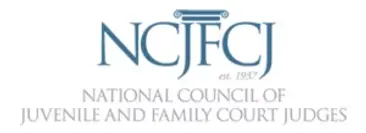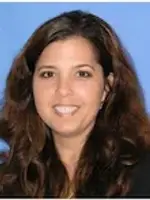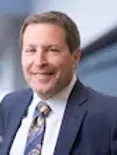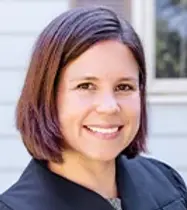
Explore the Difference
December 1-3, 2023
Portland, Oregon

Symposium Schedule
Friday, December 1
5:00 - 10:00 pm
Reception at Cultiva Law Firm
Address: 11 Martin Luther King Jr Blvd, Suite 420, Portland, OR 97232
Saturday, December 2
8:00 - 8:45 am
Breakfast and Vendor Time
8:45 - 9:00 am
Welcome to Country
9:00 - 9:45 am
Status of Cannabis Congressional Action - Oregon Congressman Earl Blumenauer
9:45 - 10:00 am
Symposium Introduction
10:00 - 11:00 am
Keynote: Safety of Psychedelics and Cannabis Impaired Driving - Dr. Marilyn Huestis
11:00 - 11:15 am
Break and Vendor Time
11:15 - 12:30 pm
Breakout Session 1
-
Cannabis and the Courts
-
Hemp and Hemp Derivatives
-
Cannabis and Driving - Differing Views
12:30 - 2:00 pm
Keynote: Field Sobriety Tests and the Detection of Cannabis Related Impairment - Dr. Thomas Marcotte
2:00 - 3:30 pm
Plenary: Facilitated Reports Breakout Session 1 and Collaborative Reflection on Emerging Ideas - Jenny Leis
3:00 - 3:45 pm
Break and Vendor Time
3:45 - 5:00 pm
Breakout Session 2
-
Developing Cannabis Testing and Technology
-
Cannabis Treatment and Mental Health
-
Beyond Standard Field Sobriety Testing: Other Indicia of Cannabis Driving Impairment
Sunday, December 3
8:00 - 9:15 am
Breakfast and Vendor Time
9:15 - 10:15 am
Plenary: Facilitated Reports Breakout Session 2 and Collaborative Reflection on Emerging Ideas - Jenny Leis
10:15 - 10:45 am
Break and Vendor Time
10:45 - 12:00 pm
Breakout Session 3
-
Cannabis Equity and Inclusion - Deeds, Not Words: Where is Equity and Inclusion in the Cannabis Industry
-
Cannabis in the Workplace and Cannabis Business Considerations
-
Cannabis and Legal Information
12:00 - 1:00 pm
Keynote: Legacy to Leadership: A Fresh Approach to Strategic Policy Design Supplemented by Technical Assistance - Scheril Murray Powell
1:00 - 2:15 pm
Plenary: Facilitated Reports Breakout Session 3 and Collaborative Reflection on Emerging Ideas - Jenny Leis
2:15 - 2:30 pm
Break and Vendor Time
2:30 - 3:45 pm
Breakout Session 4
-
Regulations and Licensing
-
Psychedelics - Legislation, Regulation, Practicalities, and the Law
-
Cannabis: The Good, The Bad, and the Ugly
3:45 - 5:00 pm
Plenary: Facilitated Reports Breakout Session 4 and Closing Discussion - Jenny Leis
Download CLE Symposium Materials Here

Venue
Portland State University
1825 SW Broadway, Portland, OR 97201, USA
Virtual Tour: https://admissions.pdx.edu/blog/virtual-tour
Located in the heart of Portland State’s campus, the Smith Memorial Student Union sits along the historic South Park Blocks.
-
ADA Accessible Entrances
-
All Gender Restrooms
-
Lactation Stations
-
Water Bottle Refill Stations
-
Skybridge to parking structures 1 and 2
CAMPUS DROP-OFF/PICK-UP ZONE
For taxis, ride shares and those with mobility impairment, the zone is located at SW College Street and SW Park Avenue, adjacent to the Viking Pavilion southeast entrance at 930 SW Hall St. Portland OR,
From I-5 South to Exit 1C — Take Exit 302B and merge onto I-405 toward US-30 W toward Beaverton. Take Exit 1C and follow directions below.
From I-5 North to Exit 1C — Take Exit 292A and merge onto OR-217 toward Tigard Beaverton; Merge onto US-26 E toward Cedar Hills Portland. Keep right to merge onto I-405 S toward Salem. Take Exit 1C and follow directions below.
Take Exit 1C:
Onto US-26 E toward 6th Ave Ross Island Bridge
Continue onto SW Broadway
Turn left onto SW 6th Ave
Turn left onto SW Jackson St
Turn right onto SW Park Ave
Turn left onto SW College St
Parking
Hourly and Visitor parking spaces are intended to accommodate PSU students, employees, and guests who choose to drive infrequently or as an alternative to their regular commute. Payment is required for all hours, and all days except for official university holidays. Self-service pay stations do not provide change.
Mobile Payment Options
We now offer three different mobile payment methods:
Parking Kitty: Download the app via the Parking Kitty website or find them on the App Store or GooglePlay Store.
Park Mobile: Enter your phone number on the Park Mobile website to download the app and get started!
Pay by Phone: Download the app via the App Store or Google Play Store, or visit the Pay by Phone website.
All mobile payment apps require a Zone Number for your parking location
Parking Location Zone Numbers
-
Parking Structure 1: 81872
-
Parking Structure 2: 81873
-
Parking Structure 3: 81874
-
University Center Building: 91872
-
Blumel Hall: 81880
-
University Place Hotel: 81878
-
Neuberger Center: 81879
-
10th Ave/Montgomery: 81876
-
10th Ave ADA Spaces: 91876
-
Art Building Lot: 81877
-
Shattuck Lot: 81875
Our Keynote Speakers
We carefully curate keynote speakers who are experts in their fields, ready to inspire and educate our attendees. We pride ourselves on bringing the best keynote speakers who bring a wealth of knowledge and charisma, ensuring an unforgettable experience.
Our Speakers
Breakout Session 1
Cannabis & The Courts
Developing Issues Hemp and Hemp Derivatives
Cannabis & Driving
Cannabis & The Courts
Cannabis & The Courts
Breakout Session 2
Developing Cannabis Testing and Technology
Cannabis Treatment and Mental Health
Beyond Standard Field Sobriety Testing: Other Indicia of Cannabis Driving Impairment
Cannabis & The Courts
Cannabis & The Courts
Breakout Session 3
Cannabis Equity & Inclusion – Deeds, Not Words: Where is Equity & Inclusion in the Cannabis Industry?
Cannabis in the Workplace and Cannabis Business Considerations
Cannabis & Legal Information
Cannabis & The Courts
Cannabis & The Courts
Breakout Session 4
Regulations & Licensing
Psychedelics – Legislation, Regulation, Practicalities & The Law
Cannabis: The Good the Bad & the Ugly
Cannabis & The Courts
Cannabis & The Courts
The Wall
Thank you to Jenny Leis for her wonderful facilitation at the 2023 Symposium.
Please feel free to visit her website https:// yourenthusiasmiscontagious. com/
During the 2023 Symposium a discussion “Wall” was created by the participants.
For Everyone
-
What about interstate commerce in cannabis are people concerned about?
-
How does the federal or state-level legalization effect past/current convictions / those in incarceration? How do you compensate for time lost?
-
Diversity, Equity and Inclusion: do you see where data is re: DEI in your discipline? If so, what do you plan/want to do about it?
-
What will it take for Congress to legalize marijuana?
-
Communities of Color intentionally including in the policy conversation: what is the plan for meaningful participation?
-
Would rescheduling cannabis to Schedule III include all forms of cannabis/wax/shatter/edibles/ vape oil? None of the current Schedule III drugs are smoked.
-
What efforts are being made by the industry to support education and prevention services, particularly for youth in today’s world of normalizing use of cannabis?
-
Considering compliance and regulation of THC isomers and derivatives – is there a “model” or best practice?
-
How can we present non-biased, factual information about cannabis in a holistic manner? For example, some studies show THC use linked to schizophrenia but don’t include genetics, science, other components that caused the onset of an episode.
-
How to develop and adhere to standards of care?
-
If a substance use disorder is an attachment disorder, and we want to reduce the number of them, how do we [??] the development of appropriate attachments?
-
How do you know what research is reliable/factual when the current landscape is so inconsistent with THC?
-
How do we ensure avoidance or repetition of past mistakes in developing/writing of best practices/policy/legislation to avoid further trauma to BIPOC communities and provide healing instead?
-
Why are we prosecuting cannabis driving cases where the science about blood tests and SFST’s is not established to a reasonable degree of scientific certainty and therefore not supportive of proof beyond a reasonable doubt?
-
There is a need for accurate content labels on cannabis products.
-
What do we need more: 1. Available mental health treatment, 2. Descheduled cannabis?
-
What’s the greater problem during a [???] hearing: 1. Judges who don’t understand the science, 2. Witnesses who can’t explain the science?
-
How do we convince states to not enact 5mg or other precise THC limits?
-
What efforts are underway federally (if any) to change the law to permit the interstate sale of cannabis products? What are the barriers? How long is it expected to take?
-
What steps are states taking to train LE officers to identify cannabis impairment? (MN got $10m to do so)
-
The cannabis industry has the potential to be as catastrophic as the opioid epidemic.
-
Scared about psychedelics on the roadway
-
IMMAD tests marijuana impairment.
-
What % of the symposium attendees have been directly impacted or had family impacted by the war on drugs?
-
Expected timeframe for DEA to make decision on whether to move TLC to Schedule III?
-
Does anyone feel like they don’t understand what “craft” cannabis is?
-
How do we expedite finding a reliable means for determining cannabis impairment?
-
Response: The DRE Evaluation has been proven as a reliable means in determining cannabis impairment in the 320 study
Law Enforcement
-
Policymakers or regulators, what is your biggest challenge when it comes to hemp products?
-
What is the best solution to address the issues and concerns relating to the lack of a reliable field sobriety test for cannabis that included an assessment of the level of impairment?
-
Among THC-legal states, are crash or other traffic outcomes different in those with and without blood THC “per se” laws?
-
If someone is utilizing self-driving cars and under influence of THC, and they get pulled over can they be prosecuted/convicted?
-
Yes – they are in control – hands on the wheel is not the test
-
Treatment
-
Why do you permit cannabis use in recovery when it also increases dopamine in the brain and can lead to dependence?
-
Why do we allow people to sleep? To have sex? To eat? To play video games? All increase dopamine. It is our job to empower clients to make healthy decisions for themselves and reform their own behavior to be healthier. Sometimes clients can use cannabis, sometimes they can’t. Not every brain works the same way.
-
Why do people want to use marijuana. To get high!
-
Or reduce pain
-
This is true but the reason for the need to be “high” is different for everyone.
Human Resources
-
To Judges/HR/Attorneys: How much do you feel like you understand the root causes of addiction and how it impacts people’s intersection with the legal system?
Attorneys
-
How do we minimize abusive cannabis consumption in a legal market?
-
Will rescheduling to Schedule III necessarily eliminate the recreational markets in every state?
-
Should federal legalization only reschedule from a 1 to a 3, how will the feds intervene with the thousands of state-legal shops for enforcement?
-
Why do you feel SFSTs are ineffective when they are really part of a whole set of tools to determine impairment?
-
To those who are invalidating SFSTs and blood tests, what is your idea for keeping impaired drivers off the roads and lowering fatalities?
Judges
-
How do courts decide on cases involving hemp, CBD, Delta-8 etc in states with variability on legalization with THC; same weight as THC?
-
Have heard that any alcohol combined with any THC has a synergistic impairment comparable to .08??
-
If the cannabis industry fails who/what will be the greatest casualty?
-
What is your “prognosis” for consistency in legislation and interpretation of existing regulation?
-
Could we see more benefits from federal legalization and regulation than keeping each state to their own commissions?
-
How much opportunity are you given professionally and/or personally to have dialogue with people in recovery from addiction or addiction treatment providers?
-
Drug treatment courts – is cannabis us precluded during time in DTC? Any exceptions?
-
How do you balance what you know about science vs the different sides that might present “scientific” findings (ie incorrect statements)?
-
Why are we still testing for cannabis to determine probation compliance?
-
What is your opinion of the DRE program in DUID cases? How much evidentiary weight do you give to a DRE opinion?
-
What is you burning legal question about help derivatives or products?
-
What would be the most meaningful change or action treatment providers can take to facilitate a more productive relationship with the courts or judiciary?
Researchers
-
Bias of drug study participants need to be included – do they know the purpose of the study?
-
What is the most promising research topic in cannabis and are there any obstacles to pursuing that topic?
-
How can we improve data and statistics regarding positive cannabis efficacy in the U.S.
-
What concerns are there about secondhand cannabis smoke and vapor?
-
Why are you not sharing more data based on demographics? (age/race/geography)
-
How would a purely objective measure of impairment, by a device, change the landscape for enforcement? How would it impact assessing alcohol, other drugs/conditions for impairment?
-
Why do you say the blood THC means nothing? I think high blood THC >10 is not from residual THC and indicates recent use?
Educators
-
Is an over-regulated market a re-criminalized market?
-
What causes more harm: drugs or the laws against them?
-
Stockton U (South NJ) is hosting a virtual Cannabis Curriculum Convening – Thursday April 25th and Friday April 26th noon-5pm EST. Designed to get cannabis profs (and other educators) together to take what we teach in class contact Robert.Mejia@stockton.edu for details.
Industry
-
Cannabis Industry: what are you doing to mitigate adverse outcomes?
-
Im from a state where THC is not legal (medical or otherwise). After listening to the 2 keynote speakers why would I want to support legalization in my state?
-
Would you be interested in helping traffic safety figure out how to best reach cannabis users with messaging?
-
How do we get people to recognize when they are impaired and unsafe to drive?
-
How do we get the industry involved in traffic safety – they say they are interested but never show up.
-
Did congress know making help legal would result in hemp intoxicants when they passed 2018 Farm Bill?
Educators
-
Is an over-regulated market a re-criminalized market?
-
What causes more harm: drugs or the laws against them?
-
Stockton U (South NJ) is hosting a virtual Cannabis Curriculum Convening – Thursday April 25th and Friday April 26th noon-5pm EST. Designed to get cannabis profs (and other educators) together to take what we teach in class contact Robert.Mejia@stockton.edu for details.
Editors
-
How will future federal laws regarding advertising cannabis bans and prohibitions for marketing be enforced? In e-commerce?
Symposium Organizers
-
Could we include state policy makers and fed policy makers next year?

2023 Symposium Gallery
Attribution; Mary Jane Oatman, Director & COO, Indigenous Cannabis Industry Association

The Symposium is filing CLE accreditation for the states listed below
A certificate of attendance will be also be available for filing with those states not on the list below for your submission to your jurisdiction.
For MCLE Rules by Jurisdiction select a state/jurisdiction from the ABA drop-down to view the CLE rules for your jurisdiction.
https://www.americanbar.org/events-cle/mcle/
-
Arizona
-
California
-
Colorado
-
Florida
-
Illinois
-
Maine
-
Massachusetts
-
Nevada
-
New Jersey
-
New Mexico
-
New York
-
Ohio
-
Oregon
-
Pennsylvania
-
Washington
NOTE: AZ, CA, MA AND NY DID NOT REQUIRE A COURSE APPROVAL APPLICATION TO BE SUBMITTED. PLEASE CONTACT THE RESPECTIVE MCLE OFFICE FOR INSTRUCTIONS ON HOW TO REPORT YOUR ATTENDANCE AND CLAIM CLE CREDIT FOR THE SESSSION(S) YOU HAVE ATTENDED.
Any questions concerning CLE Credits for this Symposium may be directed to Beth Loureiro: Registrar@judges.org
CLE EVALUATION FORM
Please Complete The CLE Evaluation Form here
CLE APPROVALS
Click on link to read pdf with CLE approvals by state
CLE Forms National Interdisciplinary Cannabis Symposium II 12.01.23
ALSO APPROVED
11/29: WA: Approved credits: 6.75 total (4.50 law & legal / 6.00 other) – other subjects: professional development AND personal development & mental health
12/05 ME: Approved credits: 7.5 (general)
12/06 Ohio – 7.5 general
12/08 Colorado – Approved CLE credits: 9.00
12/19 This form is for lawyers to report CLE credits to the CLE Board when attending a program not sponsored by an Accredited Provider. Lawyers seeking CLE credit in Pennsylvania must complete Section B of this form and return it to the CLE Board along with a copy of the provider’s attendance certificate (if available) and a check made payable to PACLE for $1.50 per credit hour. Please refer to Section C for attendance fee calculations.
12/20 Approved credits (OR): 7.5 (general)
New Mexico Credits approved: 7.5 (general credits)














































































































































